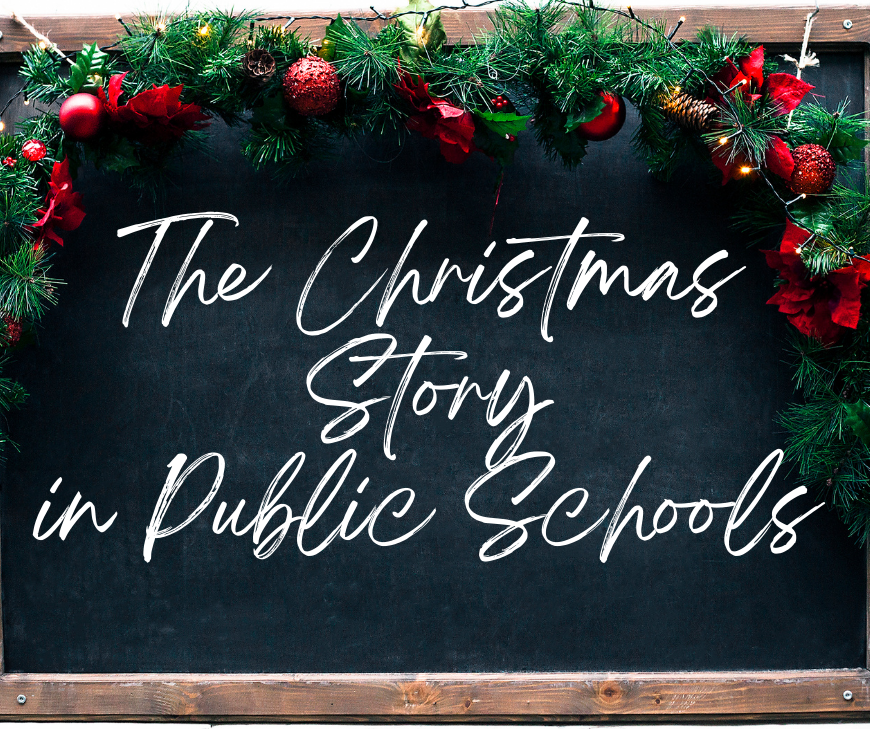Commentary
Week: November 24th - 28th, 2025
11/24/25 - Glorifying God
We all have our priorities in life, but do we know Jesus’ priority? In John 15:7-8, he says:
“If you abide in Me, and My words abide in you, you will ask what you desire, and it shall be done for you. By this My Father is glorified, that you bear much fruit;”
Abiding in Christ means aligning with His priority and His desire. And what is his priority and desire? It is to glorify the Father. So, the next time you are wondering if you are following His will in your job, your home life, your social life, and in mapping out your priorities, ask yourself will I be showing that God is number one in my life? Will I be pointing people to Him and making Him, not me, the center of attention? That’s what it means to glorify God.
You can be a gateway to better education. For more resources, visit our HOME PAGE.
11/25/25 - Christianity’s Impact on Social Movements
Many people think that the activities in social movements around world -- such as printing pamphlets, public speaking, organizing, and petitions -- just happen naturally, but that’s not the case. They were all pioneered, for the most part, in the late nineteenth century and early twentieth centuries by Protestants in England and the United States. English and American missionaries, then, took their experience in social movements with them as they traveled across the world. They helped fuel social reforms that improved developing countries.
In his research on the impact of Christian Missionaries, Professor Robert Woodbury, from the National University of Singapore points out that modernity “was not the inevitable result of economic development, urbanization, industrialization, secularization, or the Enlightenment, but a far more contingent process profoundly shaped by activist religion.”
Click here to read the full article “How Christian Missionaries Changed the World.”
11/26/25 - Teaching Christmas in Public School
Many educators want to teach about Christmas but are afraid to do it. Their fear may come from complaints they have had but more often it is from fear of complaints they think they will get. The good news is that educators can, not only acknowledge Christmas, but they can also teach all about its religious aspects.
In the case of Florey v. Sioux Falls School District, The Eighth Circuit U.S. Court of Appeals upheld the constitutionality of the school’s very open policy on religious holidays. Schools can teach about the holiday as long as the focus is academic, not devotional. But that doesn’t mean it can’t be fun. Students can sing Christmas carols, read about the birth of Jesus, and learn how and why people around the world celebrate his birth.
You can be a gateway to better education for your school. For an article what schools can do for Christmas, visit GoGateways.org/christmas.
11/27/25 - The Christmas Story in Public School
At Christmas, it is a common tradition for Christian families to read about the birth of Jesus. What many people, especially teachers, do not know is that educators can also have this tradition with their students. In the Supreme Court case of Stone v. Graham, the Court stated that in public schools “the Bible may constitutional be used in an appropriate study of history, civilization, ethics, comparative religion, or the like.”
Since Christmas is the most celebrated holiday in the world, it is logical to teach, not only what it is about, but also who the person is being celebrated and what his impact has been on world civilization. You can be a gateway to better education for your school.
For articles and lesson ideas on how public schools can teach about Christmas, visit GoGateways.org/christmas.
11/28/25 - Christmas Carols in Public Schools
Many schools will put on “winter holiday” events but think they can’t sing religious Christmas songs. However, according to the Supreme Court, they can. In fact, the Court assumes that your school is having children sing Christmas carols.
In the case of Lynch v. Donnelly, dealing with the public display of a nativity scene, the Court wrote:
“To forbid the use of this one passive symbol while hymns and carols are sung and played in public places including schools,…would be an overreaction contrary to this Nation’s history.”
Since the Supreme Court assumes your children are singing traditional carols at school, I think we shouldn’t disappoint the Justices. Let the kids sing!
You can be a gateway to better education for your school. For articles and lesson ideas on how public schools can teach about Christmas, visit GoGateways.org/christmas.






